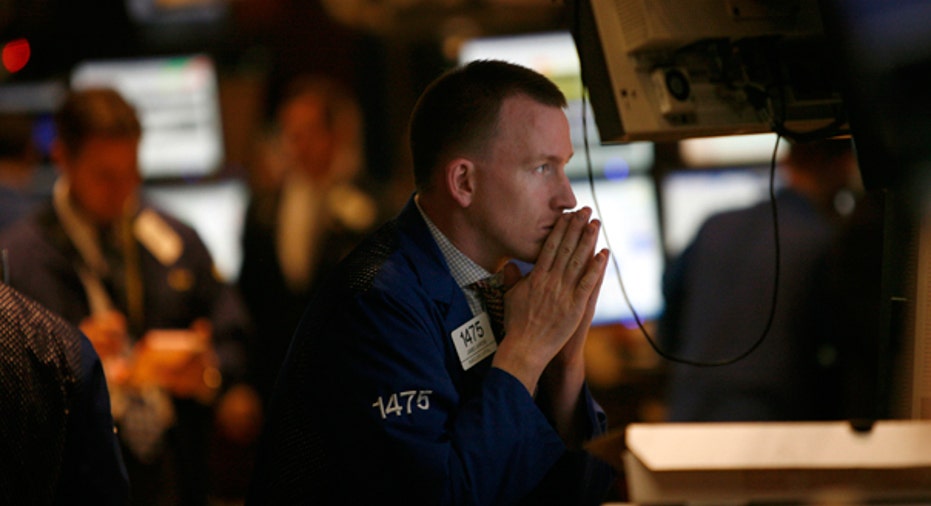Losing Streak: Dow Slumps for Fourth-Straight Week

FOX Business: Capitalism Lives Here
The Dow ended in the red for the fourth week in a row, marking the longest losing streak since August 2011 for the blue-chip average. The weakness was spurred by swelling U.S. fiscal worries and mounting tension in the Middle East.
Today's Markets
The Dow Jones Industrial Average climbed 45.9 points, or 0.37%, to 12588, the S&P 500 rose 6.6 points, or 0.48%, to 1360 and the Nasdaq Composite gained 16.2 points, or 0.57%, to 2853.
It's been another tough week for Wall Street. The Dow shed 1.8% and Nasdaq both shed 1.8%, while the S&P dropped 1.5%. Out of the S&P 500 sectors, industrials, technology and materials stocks fared the worst, all shedding more than 2%. However, all of the sectors ended in the red.
Wall Street Eyes Washington
The fiscal cliff -- a mixture of painful spending cuts and tax hikes -- that is set to go into effect at the beginning of next year has been a major cause of concern. The cliff is a vestige of the last debt debate in Congress, where lawmakers failed repeatedly to come to a so-called "grand bargain" to set the country on a more sustainable path. Now that elections have broadly reaffirmed the status quo in Washington, there is concern that politicians could fail to reach a deal.
"Initial positions in the fiscal cliff negotiations between President Obama and the Congressional Republicans suggest that the likelihood of hitting the cliff, at least temporarily, is non-trivial," analysts at Barclays wrote in a note to clients.
If the U.S. falls off the cliff, it is likely to badly damage the already struggling economy. Plus, it could put the American debt rating in jeopardy. Moody's Investors Service and Fitch Ratings still retain top-notch ratings on the U.S., but have threatened to chop it down if an agreement isn't reached. Standard & Poor's, the only major credit ratings firm to have the U.S. at less than a 'AAA' also has a negative outlook.
The White House and Congress began talks on making a deal on Friday. After the meeting, House of Representatives Speaker John Boehner, the top-ranking Republican, said progress was made during the meeting. Both tax reform and spending cuts were on the table.
Mideast Tension Heats Up
Market participants also said they were watching the unfolding turmoil in the Middle East. Israel has been performing strikes on targets in Palestine, while groups in that country continue lobbing rockets back into Israel. According to news reports, a rocket was fired at Tel Aviv, Israel's business capital, and Jerusalem, home of many holy sites. That rockets missed, but highlight the rising tensions and chance of an armed conflict in the already volatile region.
In commodities, the benchmark crude oil contract rallied $1.22, or 1.4%, to $86.67 a barrel. Wholesale New York Harbor gasoline rose 0.52% to $2.714 a gallon. Gold ticked up by 90 cents, or 0.05%, to $1,715 a troy ounce.
On the macro front, a report from the Federal Reserve showed U.S. industrial production having fallen by 0.4% in October from the month before. Wall Street expected a gain of 0.2%. However, the central bank said Hurricane Sandy sapped one percentage point from the monthly change level.
Foreign Markets
The Euro Stoxx 50 fell 0.39% to 2452, the English FTSE 100 dipped 0.69% to 5638 and the German DAX slumped 0.51% to 7008.
In Asia, the Japanese Nikkei 225 soared 2.2% to 9024 and the Chinese Hang Seng edged up 0.24% to 21159.
Rich Edson contributed reporting from Washington, D.C.



















